5 Signs the Eclipse Damaged Your Eyes, According to Doctors
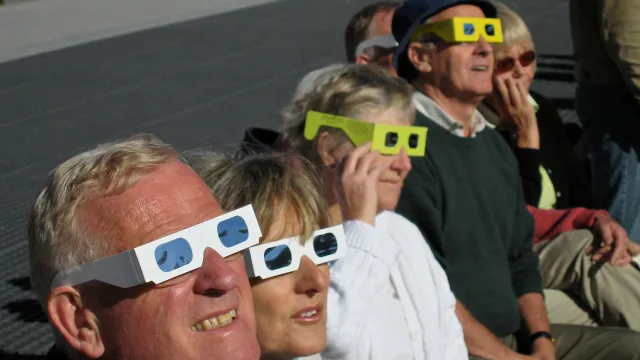
It’s not exactly news that staring at the sun can damage your eyes. But because of yesterday’s historic total solar eclipse, millions of people found themselves fixated on the sky as the moon slid across our solar system’s star. Now, whether it’s the result of counterfeit or defective protective glasses or even because people couldn’t help but take a look without them, some are worried they may be dealing with a potential injury. Read on for the signs that watching the eclipse damaged your eyes and what you can do about it, according to doctors.
RELATED: Texas Reports First Human Case of Bird Flu—How You Can Stay Safe.
Even a short glance at the sun can cause serious injury.
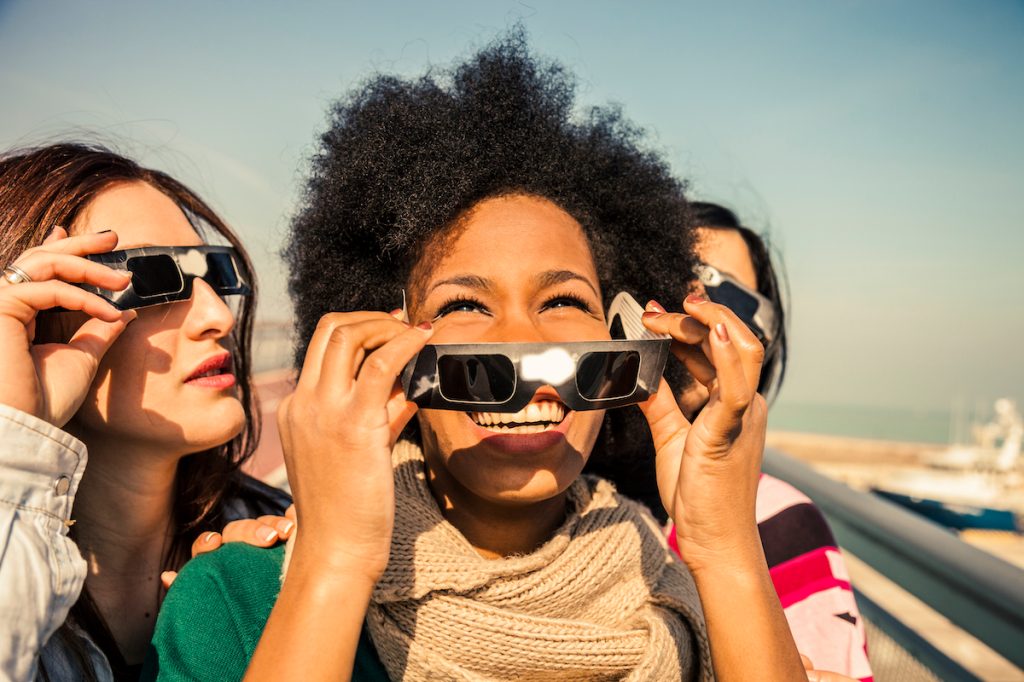
On April 8, most of the U.S. was treated to at least a partial solar eclipse, bringing tens of millions outside to take in the special event. But the stunning spectacle also had its fair share of potential risks—especially if someone looking directly at it wasn’t adequately equipped to do so with the correct eye protection.
Google searches for the term “hurt eyes” spiked Monday afternoon in the wake of the eclipse, NBC News reports. This pattern follows other solar viewing events, which are typically accompanied by a jump in reported eye injuries. Unfortunately, experts say that’s partly because it doesn’t take much sun exposure to cause moderate injury.
“A very small dose could cause harm to some people,” Yehia Hashad, MD, an ophthalmologist and chief medical officer at eye health company Bausch + Lomb, told CBS News. “That’s why we say the partial eclipse could also be damaging. And that’s why we protect our eyes with the partial as well as with the full sun.”
RELATED: The 5 Best Sunglasses for Your Eyes, Doctors Say.
However, it can be hard to look at the sun long enough to cause permanent damage.
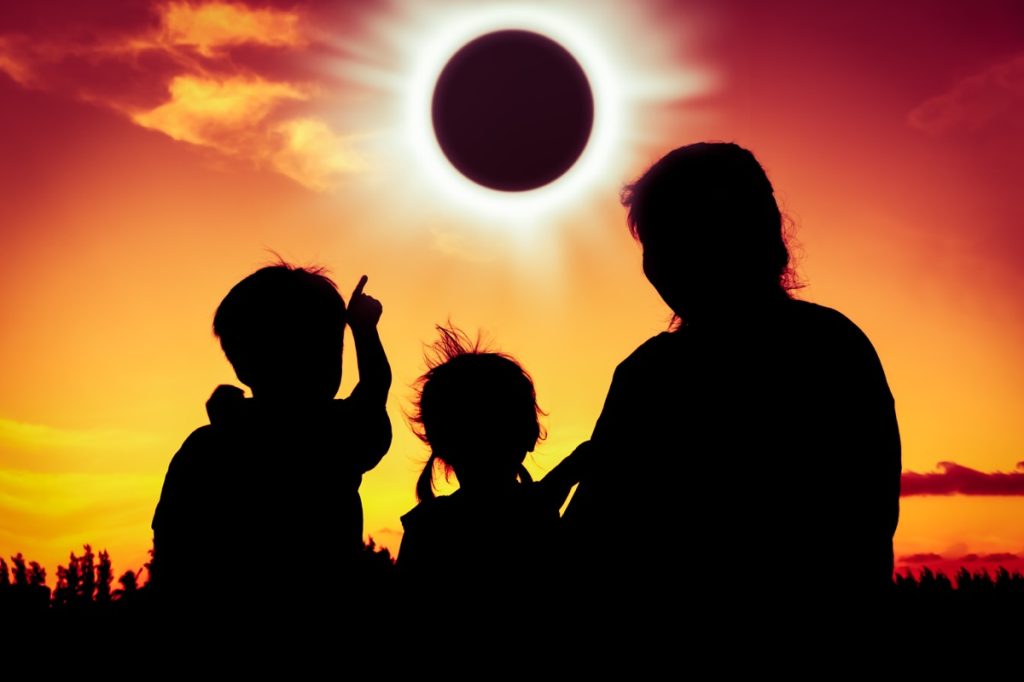
It’s not hard to see why some might panic when they notice pain or trouble with their eyes after spending an afternoon looking into the sun, even if it was a brief accident. But some experts point out that even a deliberate solar stare-down doesn’t last long enough to damage your vision permanently.
“It’s so bright that we’re not actually capable of looking at it without either tearing or sort of not really feeling comfortable staring at this ball of light,” Avnish Deobhakta, MD, an ophthalmologist at the New York Eye and Ear Infirmary of Mount Sinai, told NPR.
Even during widely viewed events like a total solar eclipse, seeing patients with long-term damage is relatively rare. In 2017, only about 100 people in all of the U.S. and Canada were diagnosed with permanent eye injuries following that year’s eclipse out of an estimated 150 million viewers, Ralph Chou, an expert on eclipse eye safety with the University of Waterloo in Canada, told NPR.
However, some experts also warn that certain conditions can make it easier for our eyes to fixate long enough to create a problem. “It can take as little as one to two seconds where you’re looking at it unprotected if you’re not using the glasses,” Luxme Hariharan, MD, chief of ophthalmology at Dayton Children’s Hospital in Ohio, told NBC News. “The problem is when the moon is blocking it in totality, and it’s cloudy, you think it’s safe to look at, and people will stare at it for longer.”
RELATED: 17 Surprising Things That Are Damaging Your Eyes.
These are some of the warning signs of eye damage from the sun.
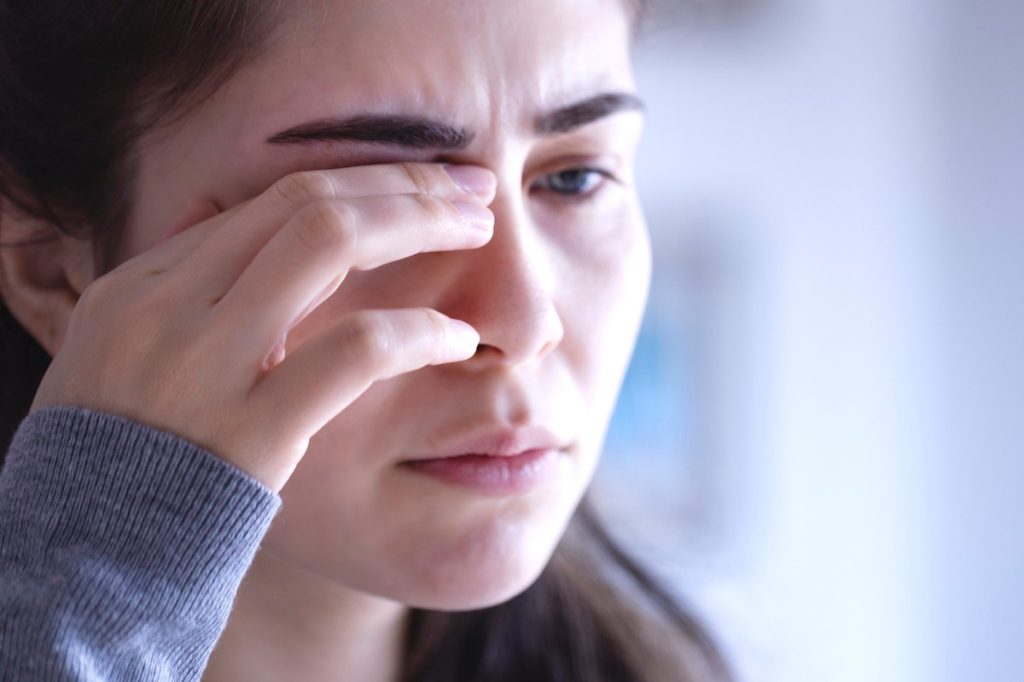
While it can be an alarming symptom, experts say that feeling pain in your eyes is rarely associated with the kind of long-term injury that could be created by the sun. However, there are still others that could point towards a serious problem.
Hashad says the most “alarming signals” of retinopathy—the official medical term for the injury—include headaches and blurred vision. Dark spots known as scotomas could also appear as a “black area” in your vision, he tells CBS News.
He adds that some “don’t see the colors the same way you were seeing it before.” And others develop metamorphopsia, which can make straight lines look bent or distorted.
“This could be happening unilateral or bilateral,” he told CBS News. “So it doesn’t necessarily happen in both eyes. It could be affecting one over the other or both eyes together.”
Anyone with potential symptoms should see a doctor right away.
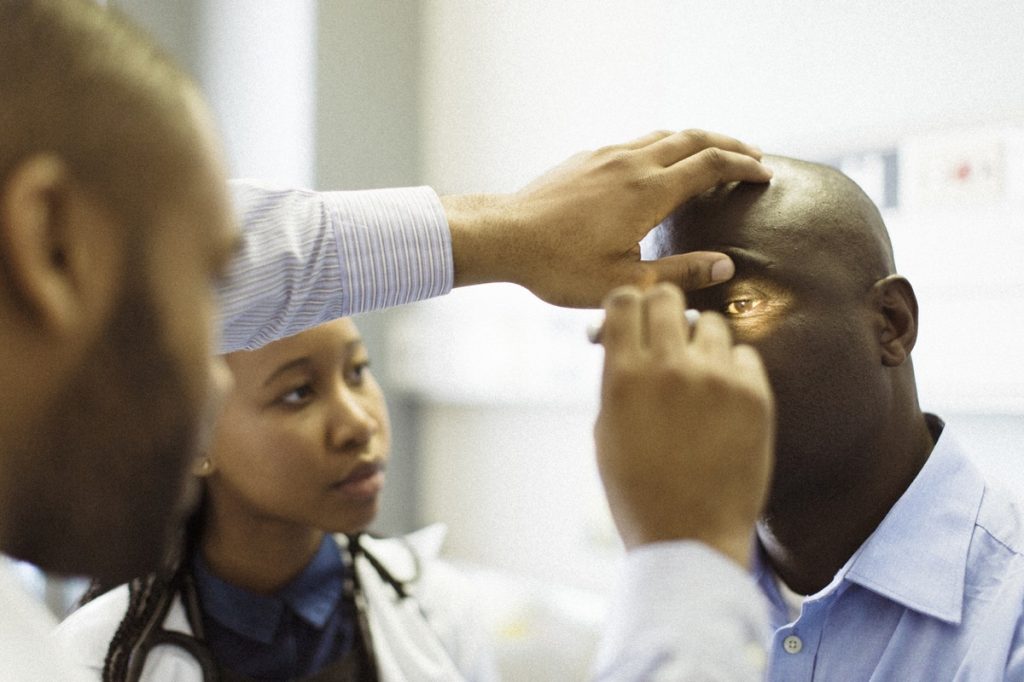
Experts say the first thing someone who notices warning signs should do is seek medical attention.
“If you have symptoms of a blind spot, wavy lines, floaters, or blurry vision, that could be solar retinopathy after this eclipse, and you need to be seen right away,” Hariharan told NBC News.
However, according to Jason P. Brinton, MD, an ophthalmologist and medical director at Brinton Vision in St. Louis, there’s no available treatment for the condition. “Right now, there is nothing that we do for this. Just wait and give it time, and the body does tend to heal up a measure of it,” he told CBS News.
Unfortunately, only time will tell how long-term the damage can be. “Often, there will be some recovery of the vision in the first few months after it, but sometimes there is no recovery, and sometimes there’s a degree to which it is permanent,” Brinton said.
Best Life offers the most up-to-date information from top experts, new research, and health agencies, but our content is not meant to be a substitute for professional guidance. When it comes to the medication you’re taking or any other health questions you have, always consult your healthcare provider directly.